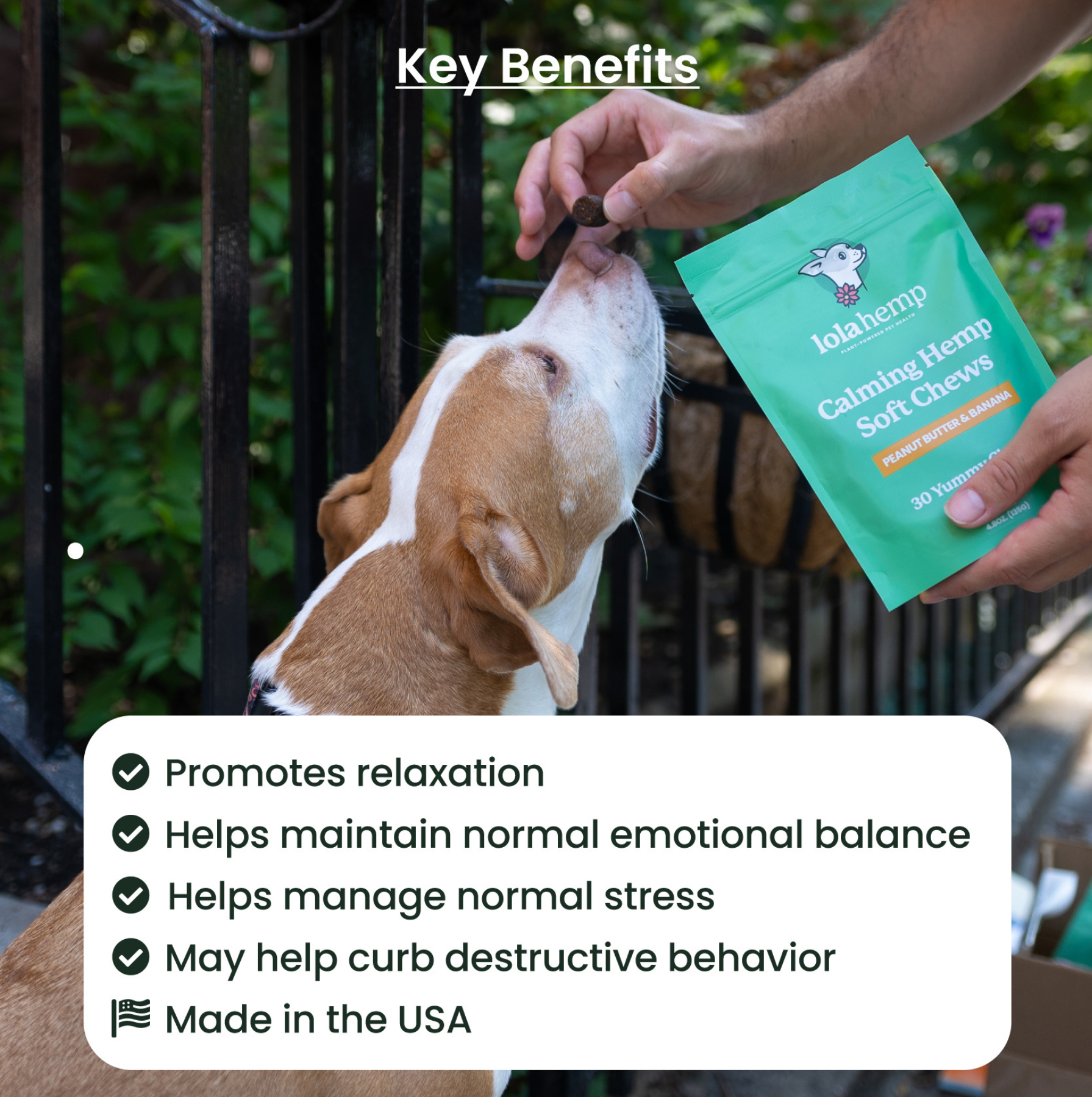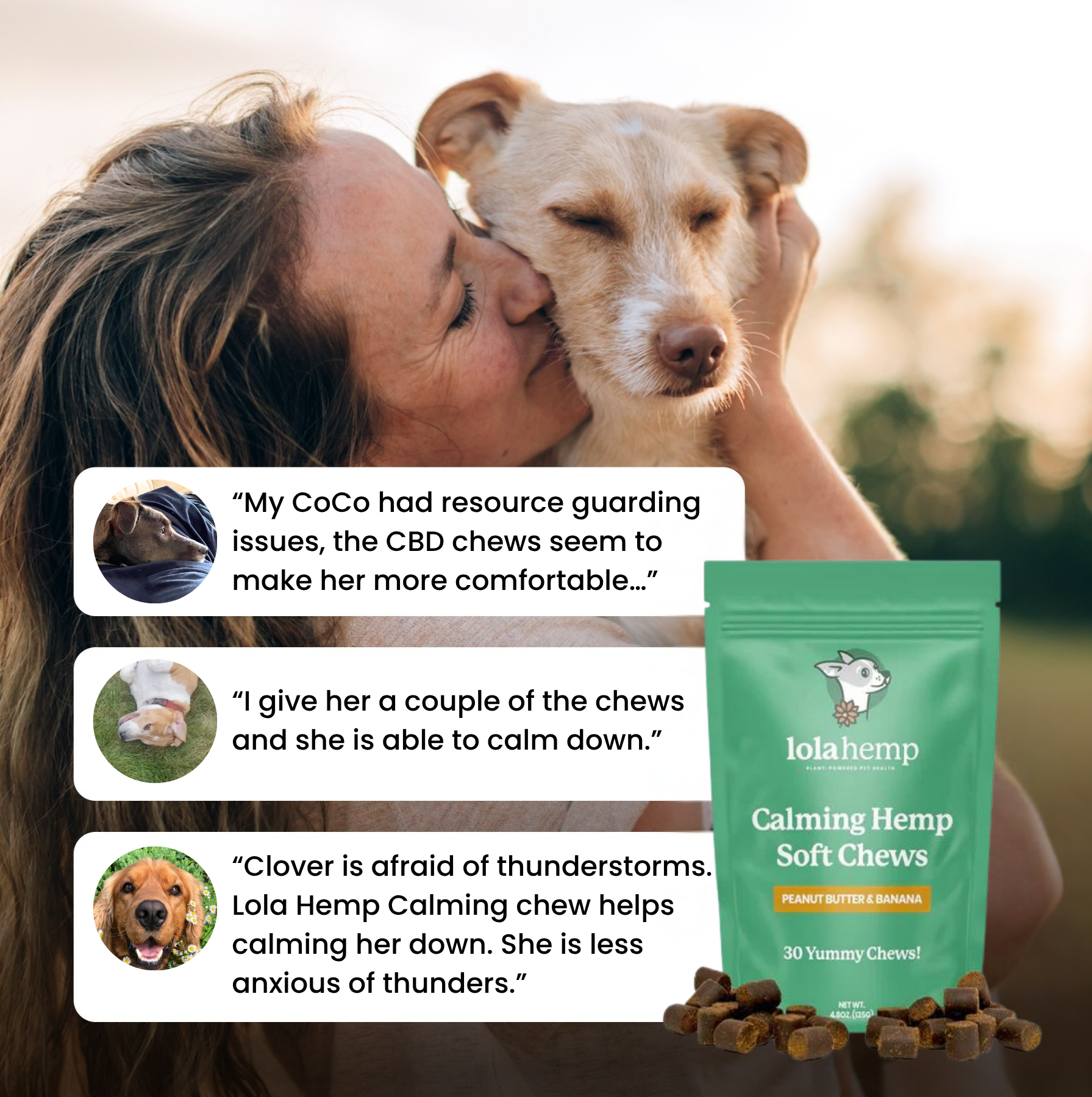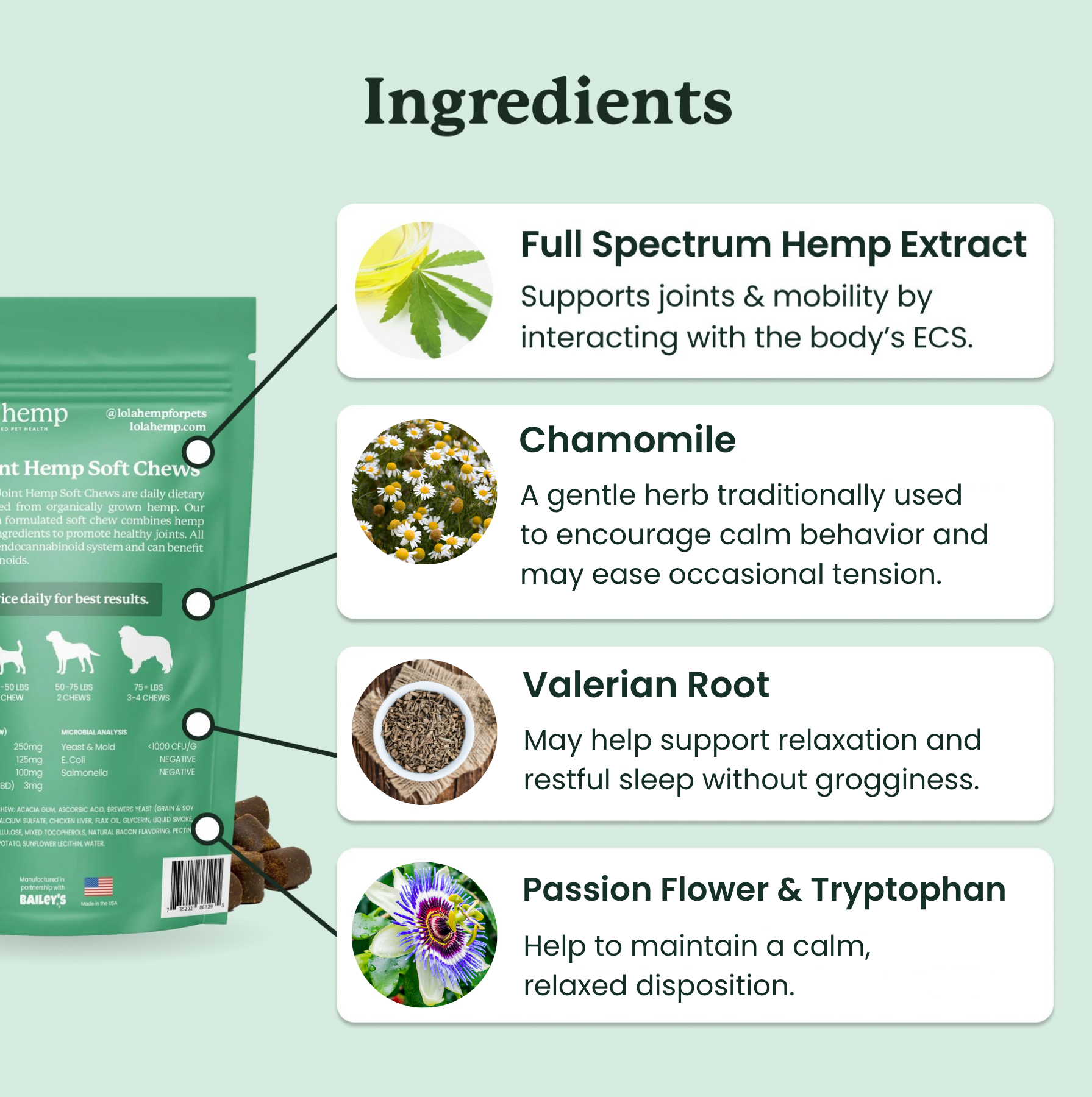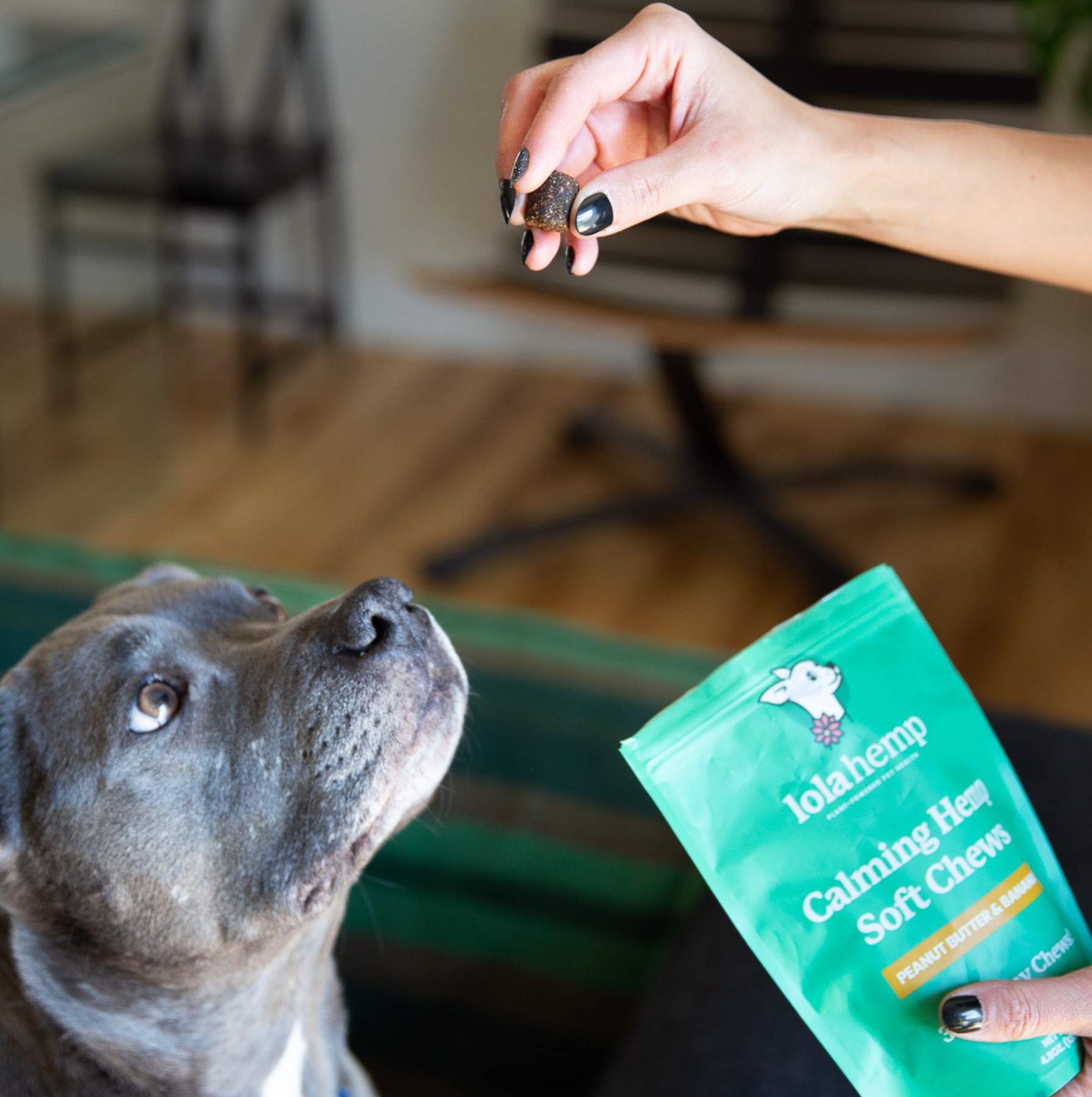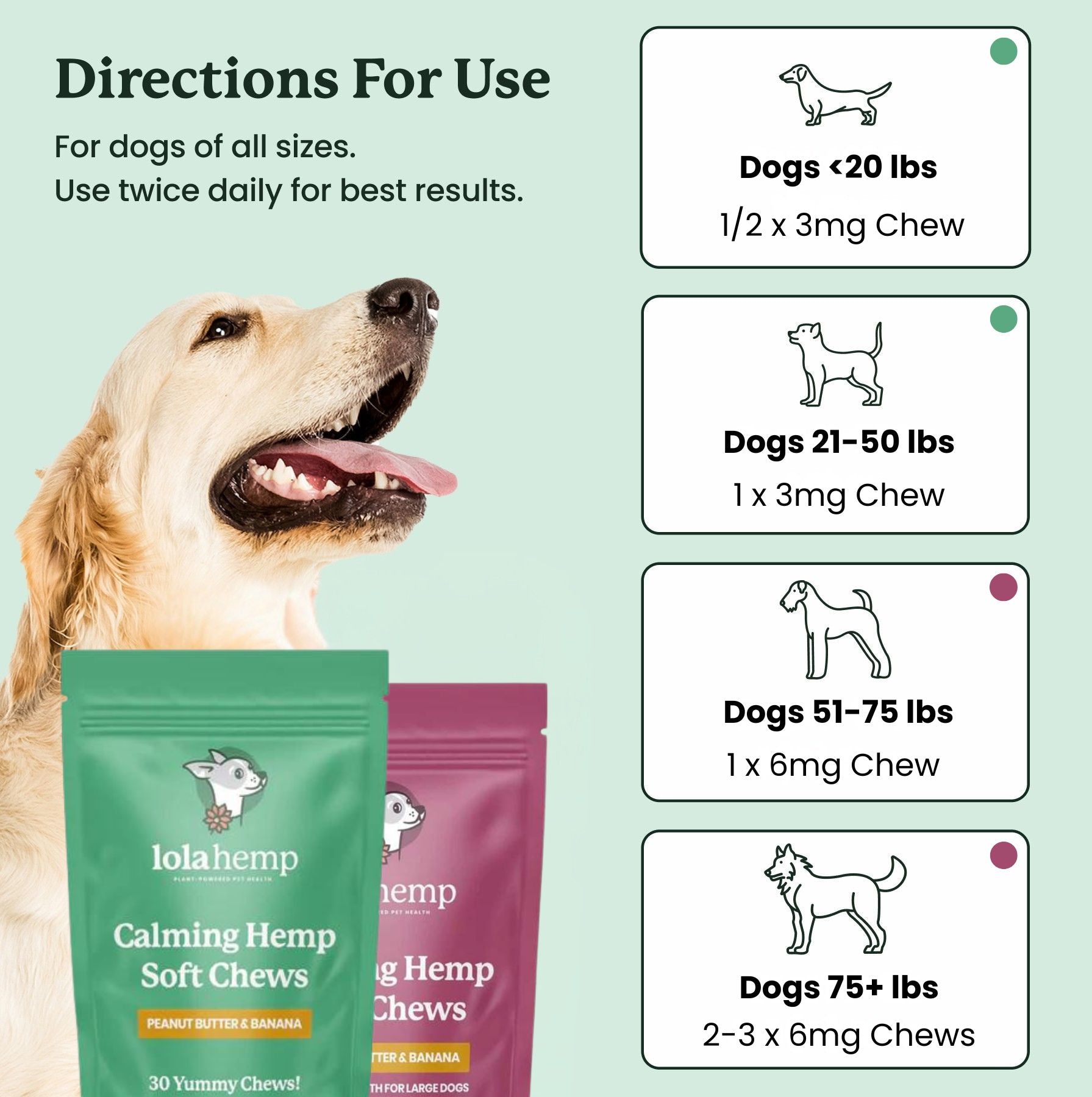Now and then, your beloved dog will start acting strangely. Your relaxed dog might suddenly burst with energy, or your hyperactive dog could experience some lethargy all of the sudden.
There are other behavioral oddities that dogs tend to show, such as eating their own poop, barking excessively, pacing, spinning, and more. This guide will look into 8 of the most common strange changes to dog behavior and what they could mean.
By having a basic understanding of these behaviors, you can respond appropriately to help your dog's emotional state. In some cases, this understanding will provide you some relief knowing that there's nothing to worry about.
- If You're Concerned about Your Dog's Weird Behavior, Contact Your Vet
- 1. Your Dog is Tail Chasing, Spinning in Circles
- 2. Your Dog is Eating Their Own Poop
- 3. Your Dog is Scooting Their Butt on The Floor
- 4. Your Dog Stares at The Wall, "Off Into Space"
- 5. Your Dog is Whining, Yelping, or Barking Unusually
- 6. Your Dog is Suddenly Acting Distant or Afraid
- 7. Biting or Snapping at The Air
- 8. Your Dog is Suddenly Licking Its Paws Excessively
- Conclusion: When is Strange Dog Behavior a Concern?
- Frequently Asked Questions About Strange Dog Behavior
If You're Concerned about Your Dog's Weird Behavior, Contact Your Vet
It's important to note that you know your dog better than anyone, and you should contact your veterinarian if you suspect there's a real issue.
Alternatively, it's just as important to remember that dogs are quirky animals sometimes. They do weird things, and there may not be any rhyme or reason to it. Telling the difference can be tricky, but the best bet is always to talk with a professional if you're unsure.
One of the most common unusual behaviors not discussed below is sudden pacing. If your dog is pacing, you can read our veterinarian-written guide on the subject here.
1. Your Dog is Tail Chasing, Spinning in Circles
The most common cause of tail chasing, unfortunately, is boredom. A close second-most-common cause is general playfulness, while there are a variety of medical issues that could cause excessive or long-lasting tail chasing.
If the tail chasing is sudden and relatively short-lived, take this as a sign that your dog needs to get out and exercise a little more. If your dog chases its tail right around the same time each day, that could mean that they're bored under those repeating circumstances.

When You Should be Concerned about Tail Chasing
Take note when your dog chases its tail multiple times a day, or repeats the behavior for multiple days in a row. This is an indication that something is bothering them, and they're trying to relieve the discomfort, whether mental or physical.
The most common medical cause of tail chasing is allergic reactions.
Excessive tail chasing can also be caused by general anxiety, parasites such as fleas or ticks lodged in the area, and issues in the anal gland.
2. Your Dog is Eating Their Own Poop
The most common cause of poop-eating (coprophagia) is a natural instinct, especially in puppies. A mother dog will clean up after her puppies by eating their waste, and some dogs retain this behavior into adulthood. Another frequent reason is nutritional deficiency—dogs may eat poop if they're lacking certain enzymes or nutrients.
If your dog occasionally eats its own poop, it may be a passing habit with no serious consequences. However, if this becomes a regular occurrence, it’s worth examining their diet and environment for contributing factors.
When You Should Be Concerned About Poop-Eating
Take note if your dog consistently eats poop multiple times a day or if they seem obsessed with it. This could indicate a medical issue, such as malabsorption, pancreatic insufficiency, or parasites.
The most common medical cause of coprophagia is enzyme deficiency.
Other potential causes include gastrointestinal disorders, extreme hunger due to an improper diet, or behavioral issues like anxiety and stress. If the habit persists despite dietary adjustments, a vet check-up is a good idea.
3. Your Dog is Scooting Their Butt on The Floor
Scooting is a behavior where dogs drag or rub their bottoms on the floor, typically caused by full or irritated anal glands. Dogs have scent glands near their anus that become impacted, which is another way of saying that they don't empty properly.
Other potential causes include food allergies, skin infections, parasites like tapeworms, or even an injury in the area. If the scooting persists or is accompanied by excessive licking, swelling, or foul odors, a vet visit is recommended.
When You Should Be Concerned About Scooting
If your dog only scoots occasionally, it may just be a minor irritation that resolves on its own. However, frequent (daily) or intense (long, forceful) scooting could mean they need their anal glands expressed or are dealing with an underlying issue.
The solution to impacted anal glands is most often "expression", which requires you, a veterinarian, or a groomer to manually release the fluid from the gland by applying pressure. Note that improper technique can lead to a dangerous infection. Don't try to do this yourself without veterinarian guidance.
Visit a veterinarian to diagnose and treat the issue, as there are multiple causes that could require attention.
4. Your Dog Stares at The Wall, "Off Into Space"
It can be alarming if your dog stares off into space for periods of time, but we're fortunate that there are some clear signs as to whether or not it's an issue.
Dogs zone out from time to time, and this is normal. Maybe they're bored, or maybe they're getting sleepy. If they're staring at the wall strangely, it could be a sign that there's something in the wall, your house is making an unusual sound, or they truly are just "zoning out."

When Staring Off Could be an Issue
It becomes an issue if it's consistent (multiple days in a row), long-lasting, or accompanied by other strange behaviors.
Namely, things like inability to respond, confusion, disorientation, or seizure-like activity such as involuntary movements mark that this could be a deeper issue. Dogs with seizures jerk involuntarily during the seizure, and may be disoriented after the seizure which is known as the post-ictal state.
If your dog is zoning out and fails to look at you when you call their name or touch them, contact your veterinarian to see if there's a serious issue.
5. Your Dog is Whining, Yelping, or Barking Unusually
If your dog is barking or vocalizing excessively out of nowhere, monitor it to see if it persists for more than a few hours. Your dog's whines, yelps, and barks are attempts to communicate with you.
Sudden, excessive barking that persists could be a sign of chronic anxiety or boredom. In the case of barking, you can most likely resolve things by adjusting your schedule and providing your dog with more activity or stimulation. Whining and yelping, on the other hand, could be more serious.
When Whining and Yelping are an Issue
Whining, yelping, and other unusual vocalizations are cause for concern when they persist for more than a few hours, or if short-lived periods of these behaviors last for multiple days. The same is true if the behavior happens one day, stops for a few days, and returns periodically thereafter.
These vocalizations often indicate lasting internal pain, often caused by arthritis, injury, GI issues, and more. If your dog is consistently yelping, whining, or both, contact your veterinarian.
6. Your Dog is Suddenly Acting Distant or Afraid
Some dogs are naturally fearful and avoidant, but otherwise confident dogs shouldn't show these behaviors all of the sudden. Acting fearful or distant once in while may not be an issue, but if there's a sudden change in your dog's otherwise confident behavior there is likely a reason.
When Fearful and Distant Behavior are an Issue
If your dog shows these strange behaviors in certain rooms, around certain objects, or around specific people, there's a chance that they experienced some form of traumatic event. Trauma could explain this sudden change in behavior, even if it's all-encompassing and not only under certain circumstances.
Another possible explanation is internal pain or an illness that makes them feel vulnerable and uncomfortable. Take note of other, parallel symptoms like vomiting, diarrhea, and lethargy as these could indicate a sudden illness.
A sudden change of behavior like this is something you should discuss with your veterinarian.
7. Biting or Snapping at The Air
This behavior can indicate a condition called "fly-biting syndrome," but is also commonly caused by fleas and nerve pain. If your dog snaps like this infrequently or only during outdoor play, it is likely totally normal.
Why Snapping at The Air or "Fly Snapping" is a Problem
When the behavior persists or is accompanied by other symptoms, it could indicate a deeper issue to be investigated by your veterinarian. Fly biting syndrome is a neurological disorder that can be linked to seizure disorders.
If your dog is biting at the air excessively or continually, schedule a visit with your veterinarian to rule out any neurological issues.
8. Your Dog is Suddenly Licking Its Paws Excessively
When your dog starts licking its paws suddenly and excessively, it can be a sign that something is bothering their paws, pads, or the space in between. While occasional licking can be normal, an abrupt change in behavior is often a red flag. Most commonly, sudden paw licking is linked to allergies.

When You Should Be Concerned About Sudden Paw Licking
If the licking comes on suddenly and your dog is focusing on one specific paw or area, it’s often a sign of pain or irritation. Keep an eye out for any of the following:
- Allergic Reactions: Dogs can suddenly develop allergies to things in their environment, like pollen or certain foods. A sudden onset of paw licking could indicate that your dog is having an allergic reaction to something they've encountered recently.
- Injury or Infection: If the licking is focused on one paw and there’s swelling, redness, or an unpleasant odor, it could point to an injury or infection.
- Irritants or Chemicals: Exposure to new chemicals like road salts or cleaning agents can trigger irritation and excessive licking.
- Stress or Anxiety: A sudden increase in licking can sometimes be a response to anxiety or stress.
If the paw licking is new, persistent, or accompanied by other unusual behaviors like limping or signs of infection, it’s important to seek veterinary advice.
Conclusion: When is Strange Dog Behavior a Concern?
The most common sudden strange behaviors in dogs typically aren't cause for concern unless they repeat or persist for more than a day or two. If the behavior is severe, or clearly reflects pain or distress, you should always visit a veterinarian right away.
That said, milder strange behaviors that occur for a short period of time are typically harmless. If you have any questions or there was something we didn't address in this article, contact your veterinarian for clear and useful advice on what to do.
Frequently Asked Questions About Strange Dog Behavior
What are the most common strange behaviors in dogs?
Common strange behaviors include tail chasing, scooting, excessive licking, staring off into space, and eating their own poop. Most are harmless but can occasionally signal medical issues.
When should I worry about my dog’s sudden behavior changes?
Worry if the behavior persists for more than a day or two, recurs frequently, or is accompanied by signs of pain, lethargy, confusion, or loss of appetite.
Why does my dog suddenly act scared or distant?
Fearful behavior can stem from trauma, pain, illness, or changes in environment. If it appears suddenly and lasts, consult your vet.
Can stress or anxiety cause weird behavior in dogs?
Yes. Stress, boredom, and anxiety can lead to unusual behaviors like paw licking, whining, or pacing. Calming routines and exercise can help.
When should I take my dog to the vet for behavioral changes?
Visit your veterinarian if behaviors are extreme, persistent, or accompanied by other symptoms like vomiting, shaking, or excessive yelping.


